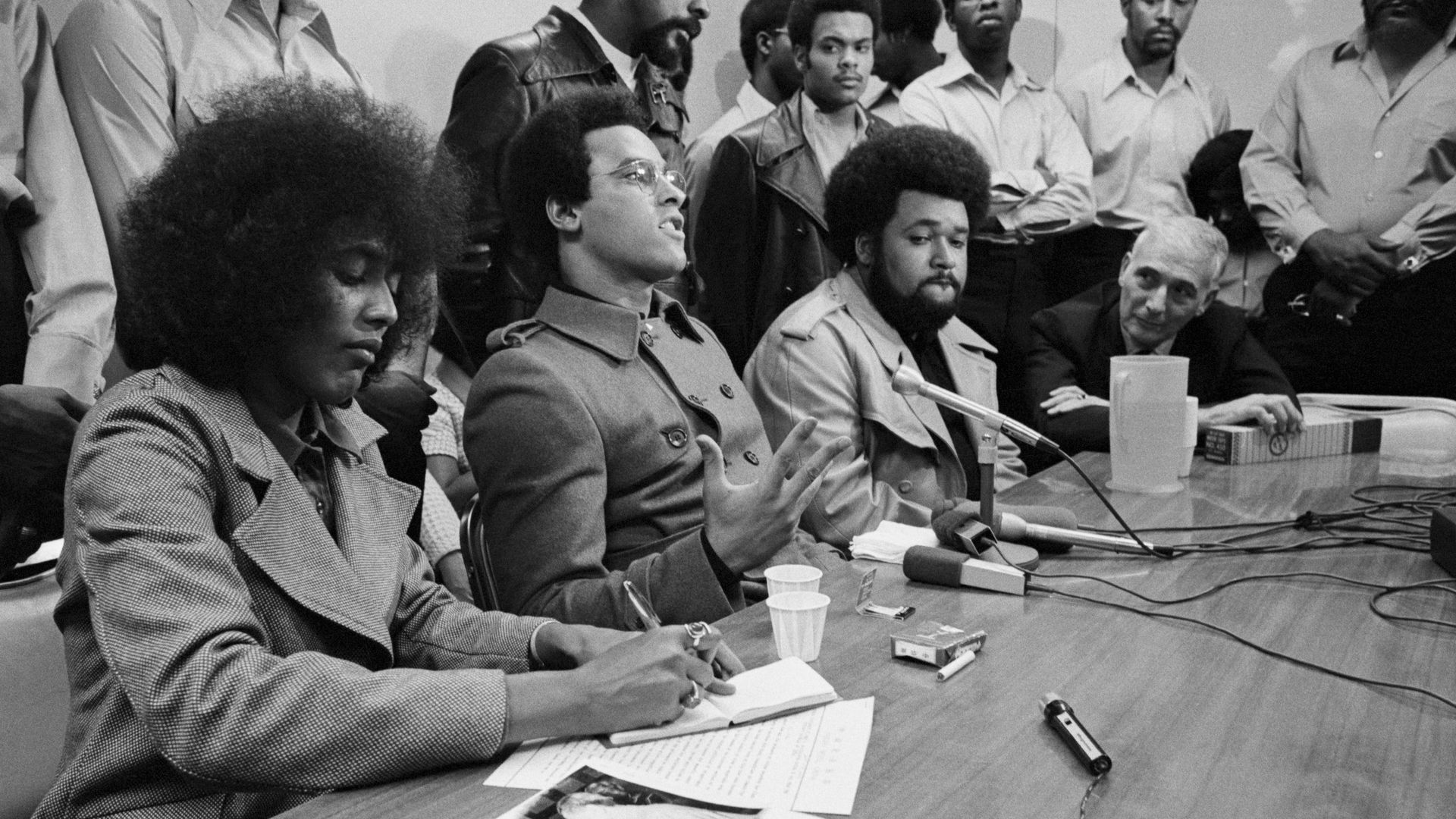When China stood with African American activists
Add Axios as your preferred source to
see more of our stories on Google.

Black Panther Party leader Huey P. Newton holds a press conference on his return from China where he met with Chinese leader Zhou Enlai, 1971. Photo: Bettmann/Contributor/Getty Images
Since the Black Lives Matter protests swept the U.S., Chinese government officials have repeatedly made public statements condemning racial injustice in the U.S. Those comments may seem largely opportunistic, as Beijing isn't known for standing up for oppressed groups these days.
But in the mid-20th century, the Chinese Communist Party and some black activists in the U.S. actually did make common cause.
Why it matters: Anti-racist activism in the U.S. has long attracted international support.
- Yes, but: After opening in 1978, the Chinese Communist Party abandoned much of the revolutionary ideology that had previously guided its foreign policy.
The big picture: There was a time when China actively supported revolutionary causes beyond its borders and when Chinese leader Mao Zedong was viewed as a hero among colonized and oppressed groups around the world.
- In the 1960s in particular, after the Sino-Soviet split, the party claimed China as the center of a world revolution.
- In August 1963, Mao gave a speech denouncing systemic racism against black people in the United States. He cast it as a result of imperialism, thus making it the duty of all enlightened revolutionaries around the world to fight for the "complete emancipation" of black people in America.
It wasn't a one-off statement. "The Chinese endeavor to cultivate political alliance with the African American left was meticulous, targeted, and effective," writes scholar Ruodi Duan.
The result: Those outreach efforts found success.
- Malcolm X spoke admiringly of Mao's global leadership at a rally in Harlem in November 1964. (A note to readers: Malcolm X refers to a term for a person of Chinese origin, common in that time period, that some now consider to be offensive, though one Chinese American author chose to use the term in the title of his 2014 memoir.)
"They used to have a saying that one doesn't have a Chinaman's chance. But they don't say that any more. They used that expression back when China was weak. But now that Mao Zedong has been successful in making China a strong country, the Chinese have more chance than anybody else. So this saying has become outdated.
Well just as it took a strong China to give a Chinese person respect wherever that Chinese person is found on this earth, when we get a strong Africa, the person of African origin or African ancestry will be respected anyplace on this earth, even in America. But he will not be respected in America until Africa is strong, just as the Chinaman wasn't respected abroad until China became strong."— Malcolm X
- Huey Newton, the founder of the Black Panther Party, came to view Mao as a hero and visited China in 1971, meeting with Chinese leader Zhou Enlai.
Fast forward: Though it no longer openly supports revolutionary movements abroad, the Chinese Communist Party still claims to carry the mantle of a formerly subjugated nation standing up to the West. And that still has a degree of appeal in countries that were once colonized, such as Pakistan and Zimbabwe, which have close relationships with Beijing.
